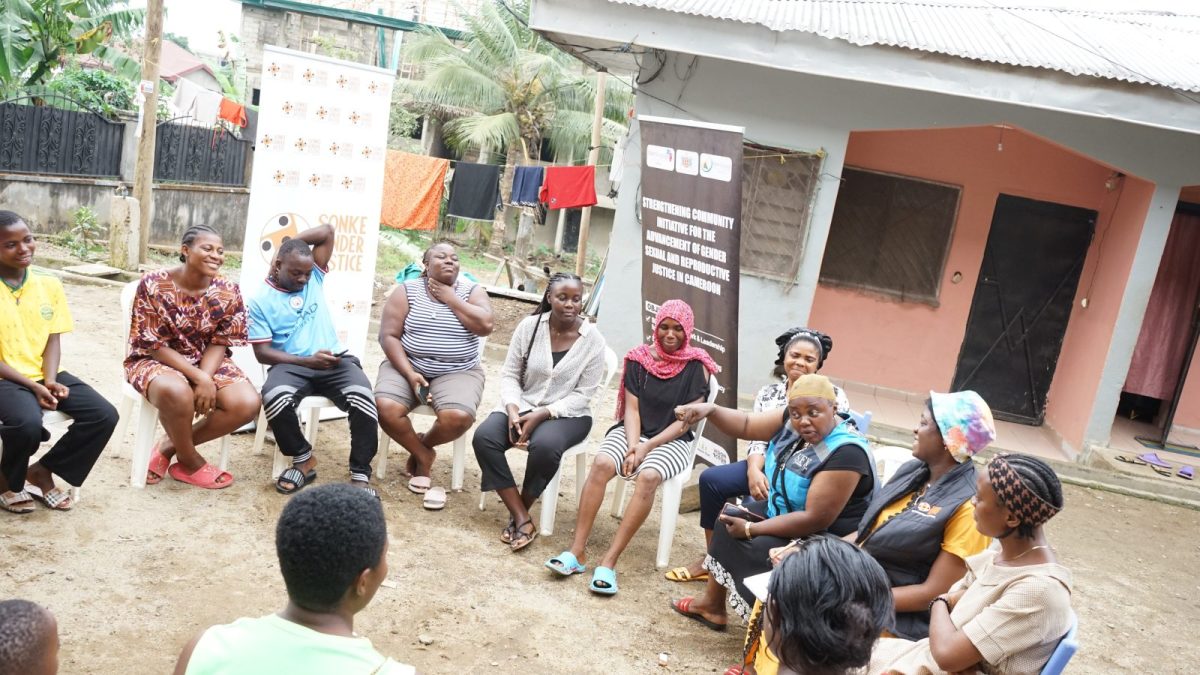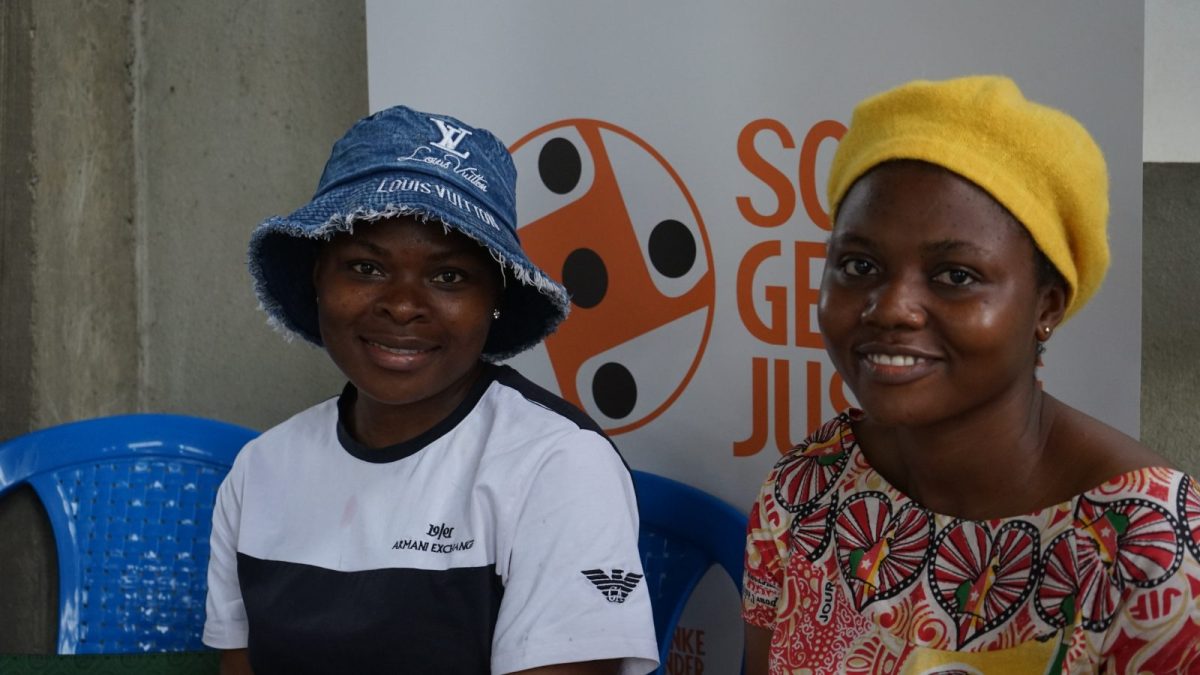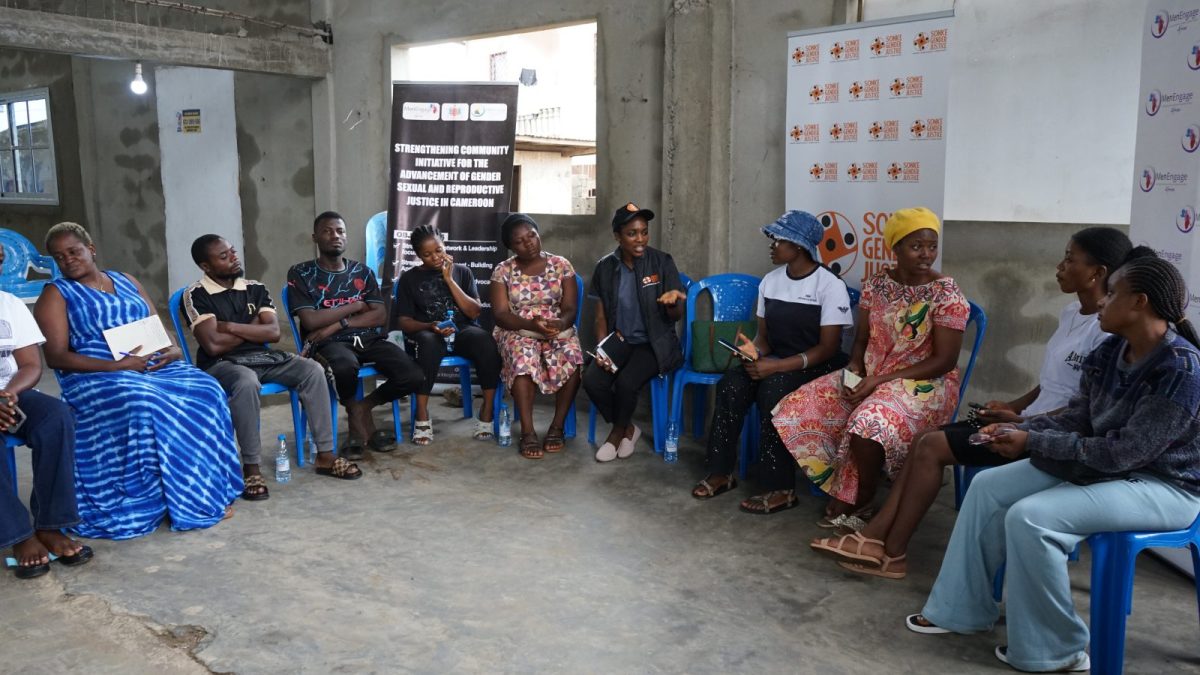Sonke Gender Justice conducted a MenEngage Africa-Promoting and protecting the progressive realization of Sexual and Reproductive Health Rights closeout visit in Cameroon from the 21st to the 22nd March, to examine the level of organisational capacities strengthened and to assess the effectiveness of project interventions in promoting SRHR and other components of gender-based violence.

The OSF grant which ended in February 2025m has since been implemented in Cameroon from February 2023, to protect and promote access to SRHR services for women and girls by supporting community-based male involvement in SRHR movement building. Throughout the grant period, Sonke provided technical and institutional support to youth led organizations for delivery of project interventions like community dialogue, organizational capacity building, awareness raising, intergenerational dialogue and youth film shows for education on project thematic issues like GBV and SRHR. The close out team met with the partners to understand their level of engagement during project implementation, visited the communities to hear from them and assessed the lead implementing organization, Community Centre for Integrated Development.
During field visits, a community dialogue was conducted to directly interact with members who participated in the project, they shared their lived experiences of issues around SRHR and other GBV related issues. After these participants were involved in project activities conducted by the Community Centre for Integrated Development, the country project lead, they were able to share their experiences of passing on the knowledge to other community members. ‘’I participated in a movie session and community dialogue on GBV. The session helped me to understand more about GBV. I also learned about menstruation. Now I am also sensitizing some members of the community on the things I learnt,’ Marth Akonjuene member of Ndongo community.

In a bid to ascertain if partners’ technical and institutional capacities have improved since project inception, the project implementing partners, Reach Out Cameroon (REO), Alliance for Community Initiative(AFCI), Denis Miki Foundation (DMF), Community Centre for Integrated Development and Djara Reube Mbororo Development Foundation (DAREM) , highlighted that the capacity building sessions helped to improve on their organizational capacities.
‘‘Many training opportunities from CCID and Sonke, Monitoring and Evaluation training contributed to our overall organizational functioning. The trainings included accountability training and gender transformation, communications training on how to develop emails and corporate branding. community dialogues helped to improve our community engagement and public speaking skills. It was all about exchange and learning,’’ Fadimatou Hussaina , Gender Officer at DAREM.
Partners also indicated an improvement in their personal professional development as well as organizational structure. This was highlighted in terms of better project management skills, coordination and systems strengthening. ‘‘This project was very impactful, it was a capacity building opportunity for me. I learnt everything about handling the project and mobilizing people. At the organizational level, our capacity was built, we now have skills gained from the different pieces of training and improved community engagement. We hope for more of this capacity strengthening opportunities from Sonke,’’ Tracy Nnam , M&E Officer at CCID.

Apart from the challenges highlighted such as tight project timelines which made logistical preparations challenging and thus called for intensified collaboration, partners also mentioned persistent community resistance to awareness raising community interventions on SRHR. The Following recommendations were made:
- More technical support and training opportunities to help improve on the quality of community interventions
- Future community engagements to include distribution of sanitary pads for women and girls to have better experiences during their menstruation
- Sensitisation sessions to be accompanied by demonstrations of how to properly use a sanitary pad.
While country partners and communities requested for additional funding and technical support for scaling of this initiative implemented by youth-led and youth-serving organisations, the existence of community members who are currently engaging in peer education gives hope for the sustainability of impact beyond funding timelines. SRHR remains a key thematic that requires the involvement of communities for lasting impact.
